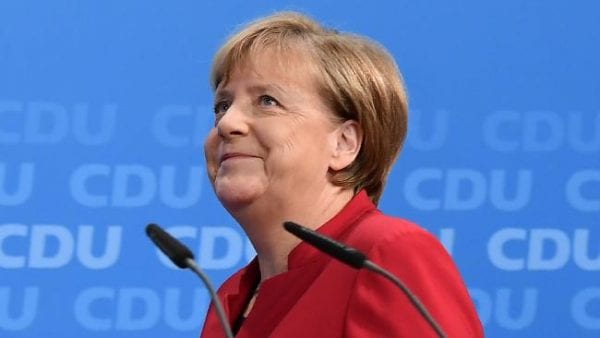Merkel acknowledged the less than emphatic victory, saying the last four years had been difficult, but that she was determined to build a strong and united government.
“Of course, we would have preferred a better result, that is completely clear.”
“But we mustn’t forget that we have had an extremely challenging parliamentary term behind us. We have a mandate to form a new government, and no government can be formed against us,” she said in a speech following the result.
Merkel added that she hoped to win back AfD voters, and recognised the new challenge of having the divisive party enter German parliament.
“There’s a big new challenge for us, and that is the entry of the AfD in the Bundestag,” she said.
Germany is of course not alone in dealing with the rise of far-right fringe parties and deeply divided electorates. Brexit, which saw the United Kingdom opt to leave the European Union in a vote last year, was propelled by far right party Ukip and its leader Nigel Farage. Ukip successfully capitalised on anti-immigration sentiment in the UK and carried forth a campaign of fear mongering.
Likewise, the French election earlier this year, was touted as “too close to call” right up until the 11th hour, with far-right candidate Marine Le Pen, winning 21.53 percent of the vote despite inevitably losing to centrist Emmanuel Macron.
With the EU teetering precariously, Merkel’s decision to open Germany’s borders to more than 1 million refugees over the her last term, was a contentious move.
While it will undoubtedly be her resounding legacy as leader, it has also led to voter hostility, haemorrhaged support and a now an unsteady political climate in Germany and the rest of Europe. Indeed the soaring popularity of AfD is a direct result of Merkel’s bold decision to take charge on the refugee crisis.
Now, in the wake of this less-than-ideal election result, Merkel will have to work hard over potentially many months to form a shaky, three-way alliance with pro-business party, liberal Free Democrats (FDP) and the Greens. The partnership has already been branded the “Jamaica” coalition, because of the party colours represented, matching Jamaica’s national flag.
But, despite this tense period in European political history, Merkel’s political prowess is not to be underestimated. Often cited as the most powerful woman on the global stage and the true Leader of the Free World, there’s little doubt that she is capable of making this new regime work.
With her victory this morning, Merkel becomes Europe’s longest serving leader, and joins the late Helmut Kohl (her mentor) and Konrad Adenauer, as the only two post-war chancellors to win four national elections.
And she’s definitely worthy of that title.
It turns out the Leader of the Free World ended up being a woman anyway. https://t.co/LiPm4tWeoT
— Claude Taylor (@TrueFactsStated) September 24, 2017


